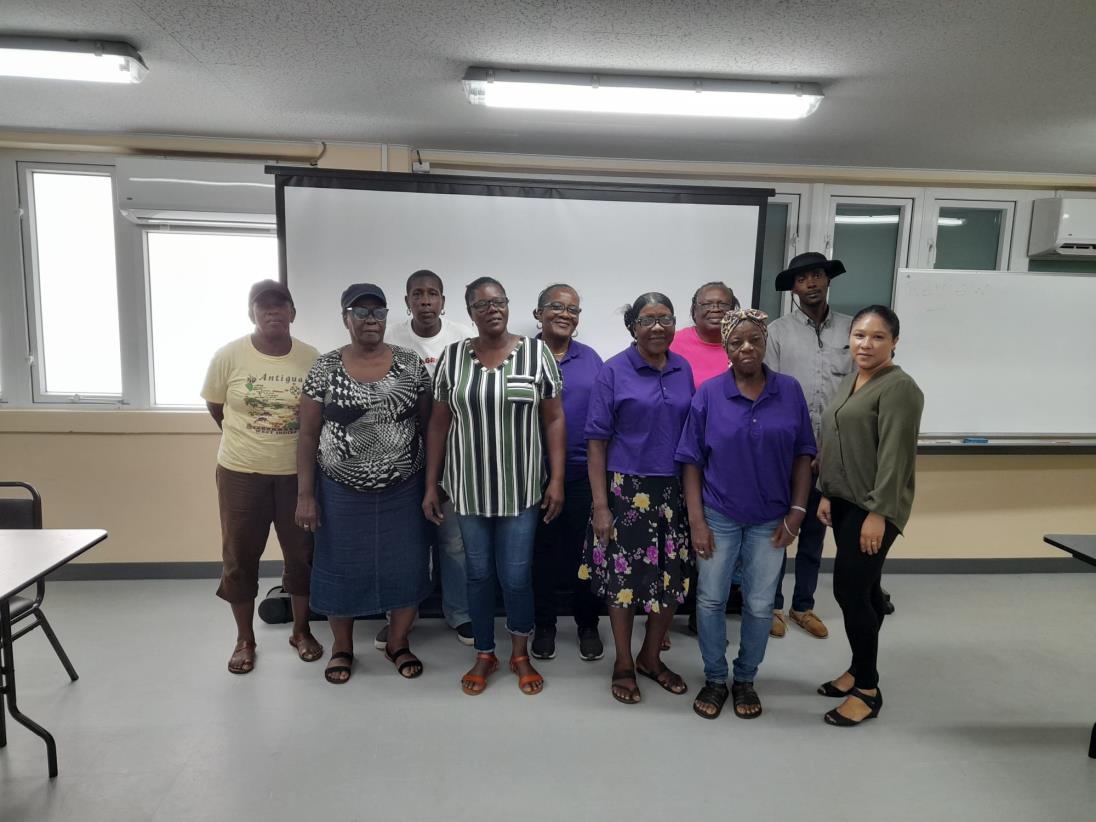Empowering Equality: FAO and Bureau of Gender Affairs Dominica Collaborate in Gender Mainstreaming Workshop

October 19, 2023, Roseau, Dominica – The assurance of equal rights, opportunities, and equitable treatment for all individuals, regardless of their gender, was the focus of discussion during the recently concluded Gender Mainstreaming Workshop, hosted by the Food and Agriculture Organization of the United Nations (FAO), in collaboration with the Bureau of Gender Affairs, Dominica.
The workshop, a key component of the ‘Resilient Aquaculture” sub-project of the Mexico-CARICOM-FAO “Cooperation for Climate Change Adaptation and Resilience in the Caribbean”, addressed the integration of gender considerations in the fisheries and aquaculture sector, identifying opportunities for women to effectively utilise the industry for economic empowerment.
Gender equality is defined by the International Labour Organization as the “enjoyment of equal rights, opportunities and treatment by men and women and by boys and girls in all spheres of life”. The training equipped participants with the skills to identify and address gender-based disparities and biases within the agricultural sector. Aquaculture Technician at the Fisheries Division, Dorian Sanford led the focus group on the knowledge of participants and farmers’ opinion on aquaculture production. This was followed by an overview on the importance of inclusivity in agriculture by Coordinator for Research and Programme Development for the Bureau of Gender Affairs, Kaywana Thomas. Participants gained a deeper understanding of gender dynamics in agriculture and acquired the capacity to implement gender-responsive approaches in their work through the analysis of the roles and responsibilities within and outside of the home, and access to land, water, and credit.
FAO National Project Coordinator Steve George noted that “Gender equality in agriculture isn't just a matter of justice; it's a pathway to more sustainable, resilient, and productive food systems. This workshop represents a critical step towards achieving that goal.” The project's main goal is to empower farmers, especially women, through sustainable practices. The project targets seek to achieve 30% in the number of women beneficiary farmers, 25% females among the number of persons trained in good practices, and 40% among individuals trained in aquaculture.
Participant Judith Peters thanked the organizers of the workshop indicating that they were informed of what aquaculture is and the resources required. "I am grateful for being exposed to the opportunities which exist in aquaculture production. The high cost of production was an eye opener and access to credit is a concern." Workshop attendees included women fish vendors and female members of the farmers group who were interested in aquaculture/aquaponics production.
By recognizing and actively promoting the rights and opportunities of women, the Mexico-CARICOM-FAO “Resilient Caribbean Initiative” is building a gender equality network across the Caribbean to benefit communities and economies. The project's approach to fostering gender equality and sustainable aquaculture reflects FAO commitment to ensuring that women actively participate in and benefit from aquaculture-related activities.
